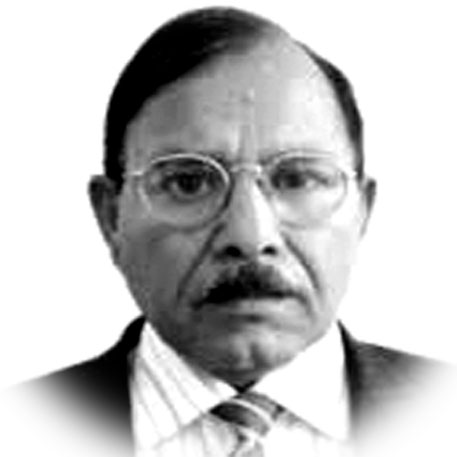The need to retract
PAKISTANI nation celebrated 75th Independence Day on 14 August with traditional zeal and fervour.
The fulfilment of the dream for a separate homeland for Muslims against un-surmountable odds and staunch resistance to the idea both by British government and the Indian Congress was made possible under the indomitable leadership of Muhammad Ali Jinnah; a constitutionalist, a democrat to the core of his heart and a believer in equal rights for minorities.
Perhaps a cursory glance at the history of the movement would be in order for the benefit of the new generation.
Muhammad Ali Jinnah was initially a staunch supporter of Hindu-Muslim unity and believed in peaceful coexistence with Hindus under a constitutional arrangement that protected the political rights of the Muslims and gave them their due share in governance.
However, he became after his disillusionment with the designs of the Hindus who only wanted India for Hindus and did not acknowledge the Muslims as a separate entity. He used this factor to rally round the Muslims to the cause of an independent state for the Muslims.
The process of his transformation into a supporter and leader of the independence movement began with his statement in 1937 that asserted “India is not a national state.
India is not a state but a subcontinent composed of nationalities, the two major nations being Hindus and Muslims whose culture, art, architecture, names and nomenclature, sense of value and proportion, laws and jurisprudence, social moral codes, customs and calendar, history and traditions, aptitudes and ambitions, outlook on life and of life are fundamentally different.
By all cannons of international law we are a nation” The vision given by Allama Muhammad Iqbal provided a clear direction to this thought process. Pakistan Resolution was finally adopted on 23rd March 1940 and within a span of seven years Pakistan became a reality on 14th August 1947.
The ideology of Pakistan has its roots deep in the history. The history of South Asia is largely a history of rivalry and conflict between the Hindus and Muslims of the region. Both communities have been living together in the same area since the early 8th Century. Yet, the two failed to develop harmonious relations.
With the advent of the British rule in India in 1858, Hindu-Muslim relations entered a new phase. The British brought with them a new political philosophy commonly known as ‘territorial nationalism’.
Before the coming of the British, there was no concept of a ‘nation’ in South Asia and the region had never been a single political unit. The British attempt to weld the two communities into a ‘nation’ also failed.
However, unlike Britain, the basis of majority and minority in South Asia was not political but religious and ethnic.
The attempt to enforce the British political model in South Asia, instead of solving the political problems, only served to make the situation more complex. The Hindus supported the idea while it was strongly opposed by the Muslims.
The Muslims knew that implementation of the new order would mean the end of their separate identity and endless rule of the Hindu majority in the name of nationalism and democracy. The Muslims refused to go the British way.
They claimed that they were a separate nation and the basis of their nation was the common religion.
They refused to accept a political system that would reduce them to a permanent minority. They first demanded separate electorates and later a separate state.
Religious and cultural differences between Hindus and Muslims increased due to political rivalry under the British rule. The Muslim ideology formed the basis of the two-nation theory.
As is evident the Muslim desire for a separate homeland was dictated by the historic events as well as their inner voice to fashion their lives in accordance with the teachings of their great religion.
The Muslims stand vindicated in demanding a separate homeland for themselves by the rise into power of BJP, a party inebriated by the RSS ideology of ‘Hindutva’ which believes in India for Hindus and in pursuance of that creed has made the lives of the minorities miserable, particularly Muslims through the promulgation of National Register of Citizenship in Assam and then enactment of Citizenship Amendment Act.
The Quaid and the Muslims rightly entertained this fear of Hindu domination. The two-nation theory contrary to the contention of its detractors stands reinforced.
Quaid-i-Azam not only created Pakistan but also gave a vision about the course it was destined to follow after independence.
He epitomized his vision in a broadcast talk on Pakistan to the people of the United States in February 1948 in these words “The Constitution of Pakistan has yet to be framed.
I do not know what the ultimate shape of this Constitution is going to be, but I am sure that it will be of a democratic type embodying the essential principles of Islam.
Islam and its idealism have taught us democracy. It has taught equality of men, justice and fair play to everybody.
In any case Pakistan is not going to be a theocratic state, to be ruled by priests with divine mission. We have many non-Muslims, Hindus, Christians and Parsis but they are all Pakistanis.
They will enjoy the same rights and privileges as any other citizen and will play their rightful part in the affairs of Pakistan”.
The best tribute and homage to that great leader is the implementation of his vision in letter and spirit. It was right time to retract our steps from the detours that we, as a nation, have taken.
It is possible only when political forces in the country abandon their divisive politics and work collectively to make Pakistan an eternal reality enjoying a respectable place in the comity of nations.
— The writer is former Director General Ministry of Information and Broadcasting, based in Islamabad.









